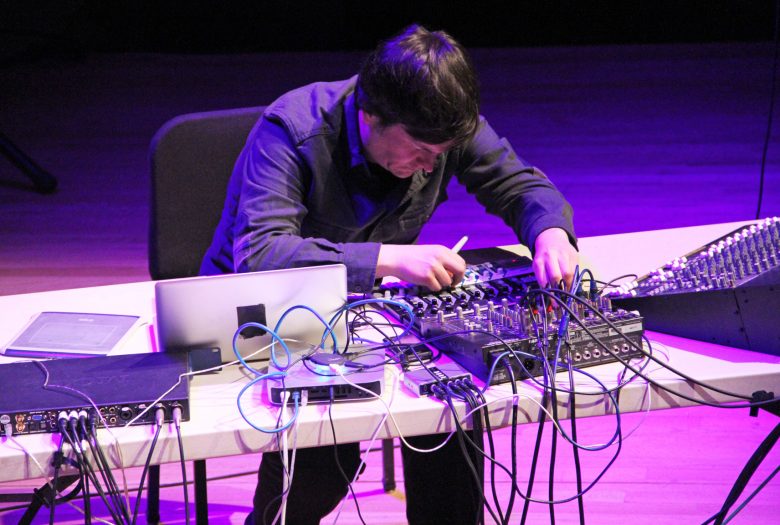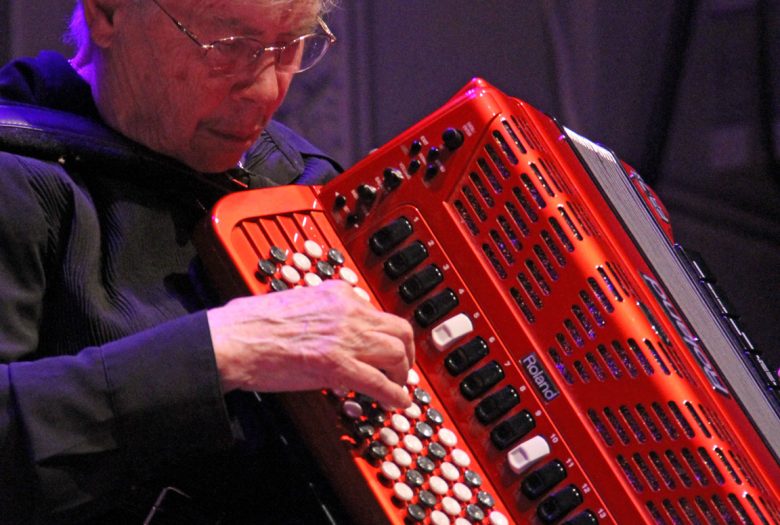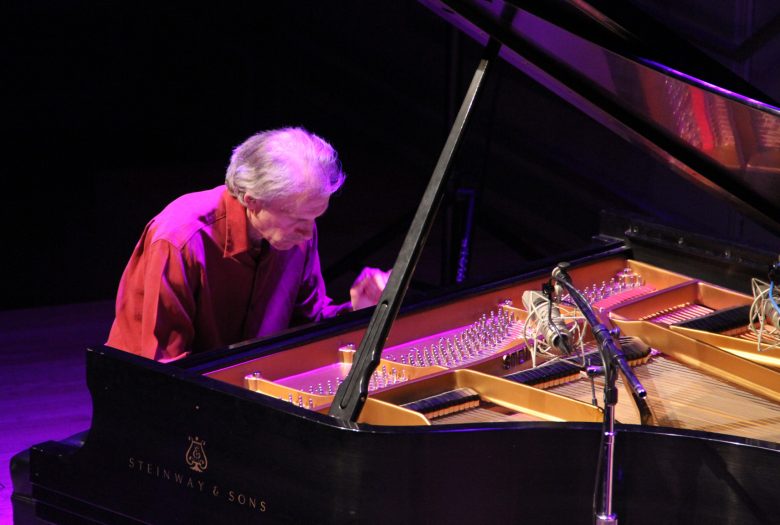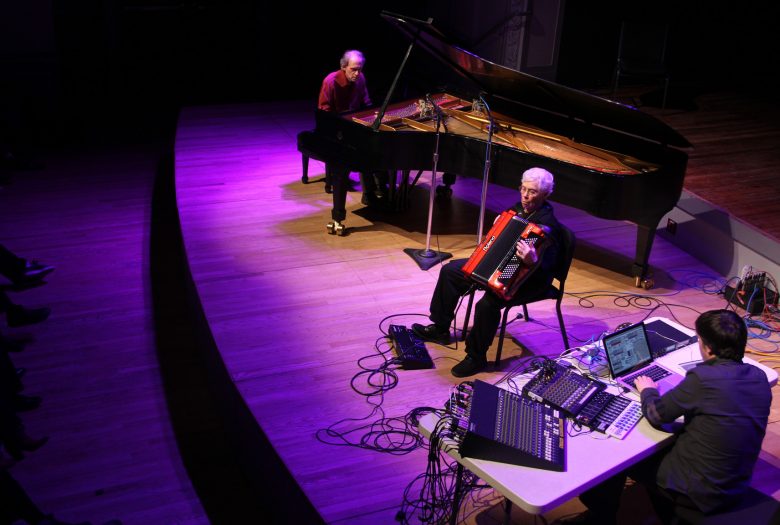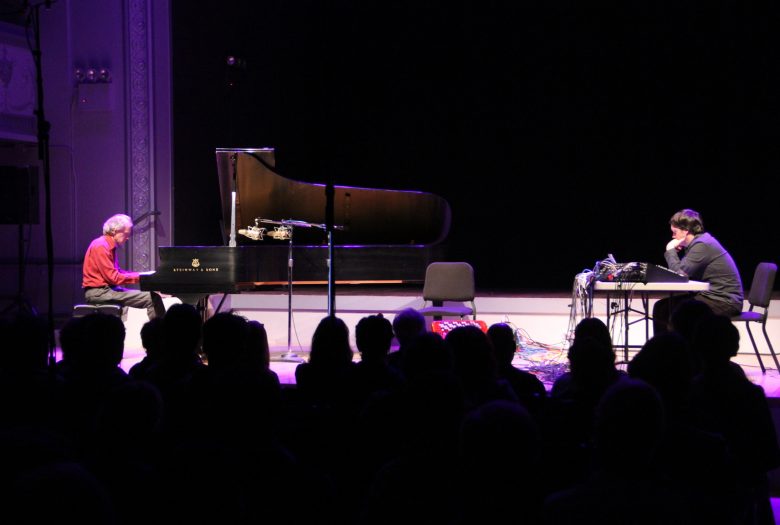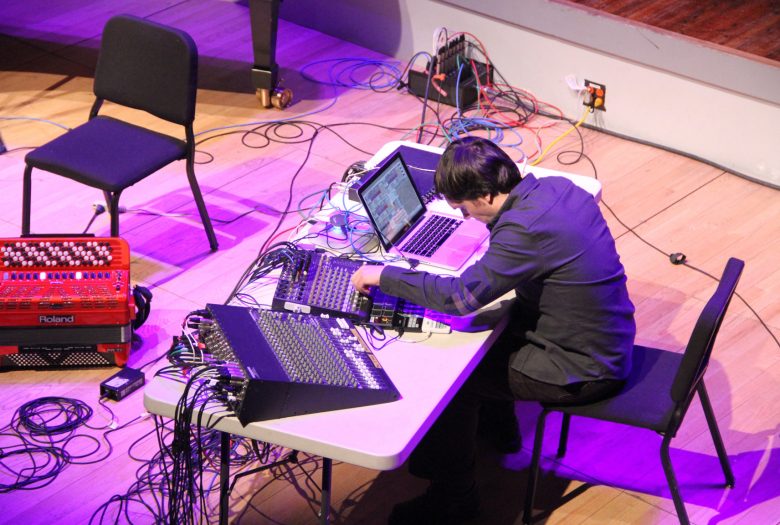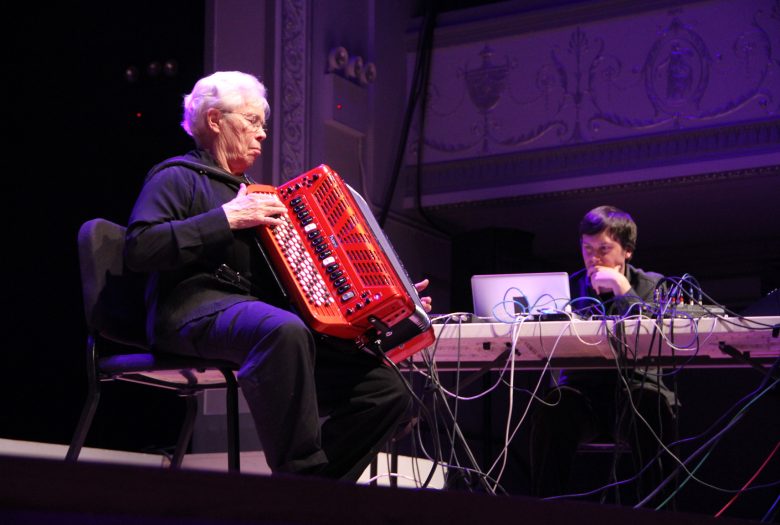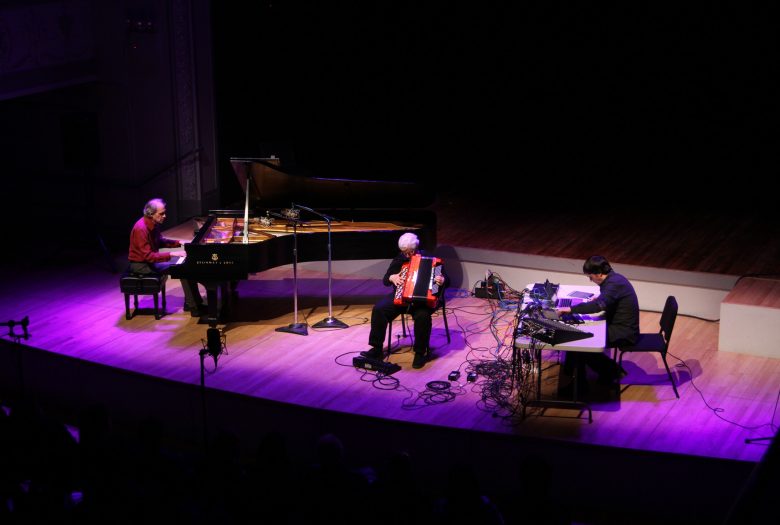This electroacoustic improvising quartet features three humans (piano, accordion synthesizer, greis/electronics) and one machine (electronics) which reacts to its partners, transforming their sound in a musical dialogue. This set will feature each of the three possible human-machine duos, followed by the full quartet.
Pauline Oliveros is a senior figure in American avant-garde music. Her career spans fifty years of boundary-dissolving music making. Oliveros is as interested in finding new sounds as she is in finding new uses for old ones. While her primary instrument is the accordion, her compositions and performances explore modes of making and listening to music enabled by technology. Since the 1960s she has influenced American music profoundly through her work with improvisation, meditation, electronic music, myth, and ritual. Recently awarded the John Cage award for 2012 from the Foundation for Contemporary Arts, Oliveros is Distinguished Research Professor of Music at Rensselaer Polytechnic Institute, NY, and Darius Milhaud Artist-in-Residence at Mills College, CA.
David Arner (piano) is a long time proponent of innovative music and spontaneous composition. His wide interests have encompassed the avant-garde, birding, mythology, astrology, modern dance and silent film within his musical pursuits. This Roulette performance marks his maiden voyage into the world of computer music.
Doug Van Nort is an experimental musician whose work is dedicated to the creation of immersive and visceral sonic experiences through the sculpting and radical transformation of his sonic environment. His instruments are custom-built electro-acoustic systems and his source materials include any and all sounds discovered through attentive listening to the world. He collaborates regularly with Pauline Oliveros among many other humans, FILTER among several other machines and is excited by the sonic potential found in this new quartet.
FILTER is the Freely Improvising, Learning and Transforming Evolutionary Recombination system. Following in the tradition of Pauline Oliveros’ Expanded Instrument System (EIS) and Doug Van Nort’s Granular-feedback Expanded Instrument System (GREIS), FILTER accepts a fellow performers’ sound and re-presents this material in a transformed state over the course of a performance as it moves its sound throughout the performance space. As with any sensitive musician, FILTER can mirror its improvising partner or it can suggest new musical directions, relative to the given musical context.

